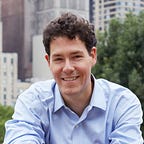Pick Your Spot: Lessons from a crew chief who survived a wildfire
August 5th, 1949. Dry, windy Montana backcountry. Temperature of 97°.
At 4:10 PM, thirteen smokejumpers parachuted from a repurposed World War II C-47 to fight a small fire. The consensus was that the blaze was a so-called 10:00 fire: one that would be under control by ten o’clock the next morning.
By 5:56 PM, a time memorialized by the melted hands of a watch, most of the crew was dead.
They had been on the ground for just under two hours. In that time, they had gathered their gear and started to hike, fire at their backs, down the steep slope to the Mann Gulch. They were making their way toward the nearby Missouri River, in search of distance from the flames and a better position from which to contain the blaze.
But turbulent winds pushed the fire ahead of the smokejumpers. As they marched through the yard-high grass toward the river, the foreman leading the crew, Wagner Dodge, spotted flames rushing toward them from the direction of the river. He turned and ran back toward his crew, shouting at them to drop their tools and follow him.
What we know about this story comes from writer Norman Maclean’s Young Men and Fire and a famous (well, in academic circles) paper by sociologist Karl Weick called “The Collapse of Sensemaking in Organizations: The Mann Gulch Disaster.” Weick’s paper builds on Maclean’s account to better understand how a group of firefighters were overwhelmed by rapidly changing circumstances.
Rather than just looking at the individuals, Weick analyzed the firefighters as an organizational unit. His analysis suggested that the deaths weren’t due to the fire alone, but to the inability of the crew to make sense of what was happening, as what had seemed like a manageable event — a 10:00 fire — quickly changed in character.
In Weick’s analysis, the fire jumping ahead was a sudden disruption of the firefighters’ understanding of reality. It did more than cut them off from the river, it also rocked their model of how the world worked, rocking what they thought had been a “rational, orderly system.”
When Dodge saw fire, he faced reality. He lit an escape fire in front of him to consume fuel — an improvisation in the moment. He laid down in the ashes left by his escape fire and shouted for his men to join him.
Overwhelmed, confused, and with no model of what was happening, they ignored him. Of the fifteen who kept running, only two survived.
Dodge’s escape followed Forest Service dictum: “Don’t allow the fire to pick the spot where it hits you.”
Pick your spot
If the world of January 2020 was a rational, orderly system, COVID-19 changed that for many of us.
It would be easy to get overwhelmed, as the firefighters did, by the change. But the key, I think, is to recognize the profound shift that has been made, even though it’s hard to do.
I recently heard the story of a startup CEO who lost millions of dollars of promised funding just as $50,000 of monthly revenue dried up. “If we can just get that revenue back,” she told an advisor, “we’ll be able to move forward.”
That’s a statement grounded in the belief that the world hasn’t changed. But if a business model needs $50,000 per month to be successful and customers aren’t buying because of COVID-19, it’s the business model that doesn’t work anymore.
Facing reality can lead to innovation, ignoring it to disaster and suffering.
Amidst our current uncertainty, don’t run. Acknowledge reality and pick the spot where you are going to meet things. It may not be the strategy that you planned for, but creativity under constraints can create chances to innovate.
For more, see Weick’s paper “The Collapse of Sensemaking in Organizations: The Mann Gulch Disaster.”
*Writing about disasters, particularly those where people have lost lives, can be challenging. My intent is never to assign blame or fault with the benefit of hindsight. The men who died that day were doing the best they could with the tools that they had. My hope is that we can learn something about what happened.
